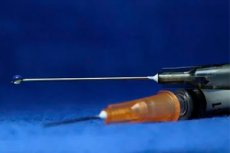New publications
Additional properties of the BCG vaccine have been discovered
Last reviewed: 02.07.2025

All iLive content is medically reviewed or fact checked to ensure as much factual accuracy as possible.
We have strict sourcing guidelines and only link to reputable media sites, academic research institutions and, whenever possible, medically peer reviewed studies. Note that the numbers in parentheses ([1], [2], etc.) are clickable links to these studies.
If you feel that any of our content is inaccurate, out-of-date, or otherwise questionable, please select it and press Ctrl + Enter.

A vaccine designed to combat tuberculosis also protects young children from other neonatal infections, including respiratory, dermatological and intestinal infections, while reducing the risk of death from these pathologies. This conclusion was made by researchers at the London College of Hygiene and Tropical Medicine, a renowned research university in Bloomsbury.
Scientists examined more than five hundred newborn babies from West Africa (Uganda), who were divided into two groups: one of them was vaccinated with BCG immediately after birth, and the other - one and a half months after birth. All babies were observed by doctors for ten weeks, while any changes and symptoms were recorded. All babies underwent blood tests, the degree of innate immune protection was assessed.
According to the results of a blinded randomized controlled trial conducted at Entebbe Hospital, it turned out that children who were vaccinated with BCG immediately after birth were 25% less likely to develop infectious diseases than babies who were vaccinated later. The differences were especially pronounced in infants born with low birth weight or with other congenital disorders. Scientists noted that the vaccine protected children not only from tuberculosis infection, but also from other infectious variations - in particular, from the common acute respiratory viral infection, respiratory and dermatological infections, viral diarrhea.
After the babies from the unvaccinated group also received a dose of BCG, the incidence rate in the groups under consideration became almost the same. That is, the immune defense of all children became equally prepared. Probably, vaccination has the ability to activate the immune system, which begins to more actively counteract any infections.
Experts note that this is the first such study aimed at studying all possible pathologies that the tuberculosis vaccine can protect against. The results of the work make it likely that the introduction of BCG vaccines to all newborn babies will help reduce the incidence of neonatal infectious pathologies, as well as mortality in regions with increased infectious morbidity.
The announced results of the study make it possible to assume that the anti-tuberculosis vaccine can, to some extent, counteract the development of coronavirus infection in the body, as well as other new viral infections.
The results of the study were published in the Lancet Infectious Diseases.
